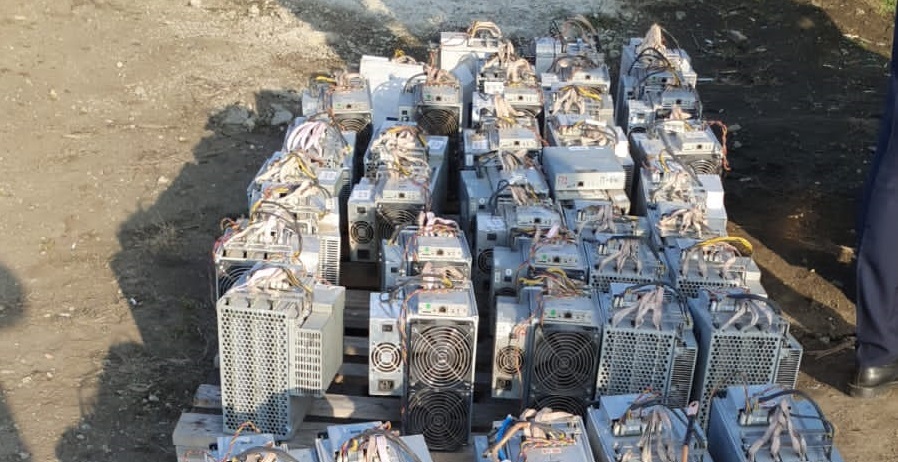Authorities and power utilities in various Russian regions have shut down illegal crypto mining farms, seizing hardware and taking operators to court. The action against the coin minting facilities comes amid discussions on a proposal to introduce criminal liability for miners breaking the upcoming legislation for the industry.
‘Underground’ Crypto Mining Farms Shut Down Across Russia
Police and power suppliers have uncovered and dismantled illegal crypto mining installations in Siberia and Southern Russia, local crypto news outlets reported this week, quoting authorities. In one of the cases, the organizers of a mining enterprise have been charged with stealing large amounts of electricity.
Employees of Rosseti North Caucasus found a fairly large improvised mining farm in Shpakovsky district of the Stavropol Krai. Together with law enforcement, they confiscated 66 ASIC miners, the region’s power electric company announced on Friday.
A resident of the village of Nadezhda, who placed the equipment in his house and connected it to the grid, may now face criminal liability for running the underground facility. Power engineers have estimated that it burned 954,000 kWh of electricity for over 6 million rubles ($78,000).

A similar installation was discovered in the attic of a school in the town of Shelekhov, Irkutsk Oblast, when police responded to a report by the local power utility about unusually high electricity consumption and noise coming from the roof of the building. Officers seized 25 mining units which had been installed by the school’s electrician and a friend of his who was an IT specialist.
Such cases are quite common in the Siberian region, dubbed the mining capital of Russia, where many people mine in basements, garages and dachas, trying to make a buck using subsidized electricity in residential areas. According to a report in February, over 1,000 lawsuits have been filed against at-home crypto miners in Irkutsk.
This week, the Prosecutor’s Office of Tomsk, another Siberian oblast, announced it has approved the indictment in a criminal case against seven local residents who organized to illegally connect several premises with crypto mining equipment to the grid. They are accused of causing damages to the power supplier for an estimated 24 million rubles (over $310,000).
The latest examples of Russian authorities clamping down on unauthorized mining come as lawmakers and government officials are preparing to resubmit a revised bill designed to regulate the activity. Amendments introducing criminal liability and harsh penalties for so-called “gray” miners who evade taxation sparked reactions from the crypto industry.
Do you think the Russian government will continue to crack down on underground crypto miners? Share your thoughts on the subject in the comments section below.
Image Credits: Shutterstock, Pixabay, Wiki Commons
Disclaimer: This article is for informational purposes only. It is not a direct offer or solicitation of an offer to buy or sell, or a recommendation or endorsement of any products, services, or companies. Cryptox.trade does not provide investment, tax, legal, or accounting advice. Neither the company nor the author is responsible, directly or indirectly, for any damage or loss caused or alleged to be caused by or in connection with the use of or reliance on any content, goods or services mentioned in this article.




